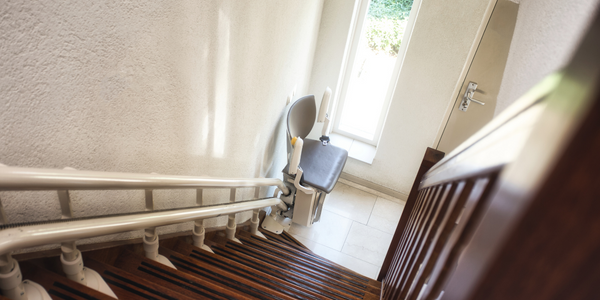Download PDF
Thyssenkrupp Claims Up to 4x Faster Workflow with HoloLens

Technology Category
- Analytics & Modeling - Virtual & Augmented Reality Software
- Wearables - Augmented Reality Glasses, Headsets & Controllers
Applicable Industries
- Equipment & Machinery
Applicable Functions
- Product Research & Development
Use Cases
- Augmented Reality
The Challenge
Installing stairlifts can be challenging because every home staircase is unique and there is no one size fits all lift for them. Every stairlift must be customized to each individual staircase, so measuring, manufacturing, and installation takes quite a bit of time.
The Customer
Thyssenkrupp
About The Customer
The customer is a German multinational conglomerate with focus on industrial engineering and steel production. The company is based in Duisburg and Essen and divided into 670 subsidiaries worldwide. It is one of the world's largest steel producers; it was
The Solution
Using the HoloLens can make these steps more efficient. The stairlift engineer is guided through the process on the HoloLens by performing digital data capturing by measuring the steps of the staircase and keeping a record of this data.
This data is uploaded to the Microsoft cloud in real time, so the manufacturing site has access and production on the stairlift can begin immediately.
Related Case Studies.

Case Study
Smart Water Filtration Systems
Before working with Ayla Networks, Ozner was already using cloud connectivity to identify and solve water-filtration system malfunctions as well as to monitor filter cartridges for replacements.But, in June 2015, Ozner executives talked with Ayla about how the company might further improve its water systems with IoT technology. They liked what they heard from Ayla, but the executives needed to be sure that Ayla’s Agile IoT Platform provided the security and reliability Ozner required.

Case Study
IoT enabled Fleet Management with MindSphere
In view of growing competition, Gämmerler had a strong need to remain competitive via process optimization, reliability and gentle handling of printed products, even at highest press speeds. In addition, a digitalization initiative also included developing a key differentiation via data-driven services offers.

Case Study
Predictive Maintenance for Industrial Chillers
For global leaders in the industrial chiller manufacturing, reliability of the entire production process is of the utmost importance. Chillers are refrigeration systems that produce ice water to provide cooling for a process or industrial application. One of those leaders sought a way to respond to asset performance issues, even before they occur. The intelligence to guarantee maximum reliability of cooling devices is embedded (pre-alarming). A pre-alarming phase means that the cooling device still works, but symptoms may appear, telling manufacturers that a failure is likely to occur in the near future. Chillers who are not internet connected at that moment, provide little insight in this pre-alarming phase.

Case Study
Premium Appliance Producer Innovates with Internet of Everything
Sub-Zero faced the largest product launch in the company’s history:It wanted to launch 60 new products as scheduled while simultaneously opening a new “greenfield” production facility, yet still adhering to stringent quality requirements and manage issues from new supply-chain partners. A the same time, it wanted to increase staff productivity time and collaboration while reducing travel and costs.

Case Study
Integration of PLC with IoT for Bosch Rexroth
The application arises from the need to monitor and anticipate the problems of one or more machines managed by a PLC. These problems, often resulting from the accumulation over time of small discrepancies, require, when they occur, ex post technical operations maintenance.

Case Study
Robot Saves Money and Time for US Custom Molding Company
Injection Technology (Itech) is a custom molder for a variety of clients that require precision plastic parts for such products as electric meter covers, dental appliance cases and spools. With 95 employees operating 23 molding machines in a 30,000 square foot plant, Itech wanted to reduce man hours and increase efficiency.




